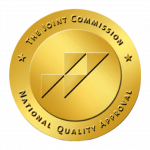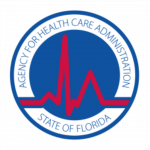The need for therapy arises from many unique reasons and experiences but the common question is, “how do I know if I need therapy?” Some may seek therapy after a traumatic event, whereas others may just feel stuck in life. All reasons are equally valid. Knowing, as well as understanding the types of therapy modalities available to you is a great place to start.
What are the common types of therapy?
Client-Centered Therapy (Person-Centered Therapy, PCT, CCT or Rogerian Therapy)
This type of therapy is led by the client as much as possible and leaves little direction to the therapist. The client expresses and works through the situations that are problematic. CCT therapists demonstrate more overt care for their clients, rather than more analytical therapists. They put more time and effort into empathizing with clients.
Cognitive Behavioral Therapy (CBT)
This method of therapy identifies problematic thoughts and behaviors. The observations are then worked through to treat dysfunctional thinking that leads to maladaptive behaviors, mental illness, and negative emotions. This type of therapy treats individuals with Bipolar Disorder, Borderline Personality Disorder, Anxiety Disorder, Substance Use Disorder, and other behavioral health disorders.
Existential Therapy (part of the Humanistic-existential Approach)
During existential therapy, you are guided through your life’s experiences to determine your full potential. Existential therapy is part of the Humanistic-existential Approach which helps clients manage aspects of the human condition. This includes all the givens of human existence: isolation, meaninglessness, mortality, and freedom.
Gestalt Therapy (part of the humanistic category)
Gestalt Therapy will have you focused on personal responsibility and the present. During this process, there is the development of the therapist-client relationship. The social context of the client’s life, awareness, attitudes, and direct feelings. Perceptions rather than interpretations are also addressed.
Psychoanalytic or Psychodynamic Therapy
This is the oldest form of psychotherapy and the closest to Freud’s original method. Psychoanalytical Therapy explores unconscious feelings or thoughts and the impact of the past on the present.
Dialectical Behavior Therapy (DBT)
DBT uses a problem solving and acceptance-based modality — among other strategies — often to treat severe and chronic mental health conditions, including borderline personality disorder, suicidal ideation, self-harming, eating disorders, and PTSD.
Anger Management
This form of therapy teaches clients to identify stressors, remain calm and work through tense situations in a positive and constructive manner.
Motivational Interviewing
This form of counseling is also referred to as, Motivational Enhancement Therapy (MET). The focus is on improving motivations to make positive changes. During these sessions, patients will experience breakthroughs and eliminate maladaptive patterns.
Conflict-Resolution Therapy
This is the focus on the solution rather than the problem. Therefore, this approach teaches patients how to identify, then resolve conflicts with the intended outcome.
Types of Therapy for Groups (Couples, Families or Group Therapy)
Couples Therapy
- Collaborative Couples Therapy (CCT) enables couples to learn to help each other with problems rather than opposing each other.
- Gottman Method Couples Therapy is a goal-oriented therapy that fosters interpersonal growth and connection.
- Imago Relationship Therapy helps couples connect by exploring their core beliefs from as far back as childhood.
- Relational Life Therapy is a guided therapy that resolves conflict, explores accountability and creates intimacy.
Family Therapy
- Family Attachment Narrative Therapy is for behavioral issues in children-parent relationships usually targeting past abuse and attachment issues.
- Parent-Child Interaction Therapy (PCIT) strengthens the parent-child bond, reduces negative behaviors and teaches parents how to better interact with their children.
- Family Systems Therapy enables family members to resolve conflict in a constructive way. It focuses on the family-unit, expectations and roles we pay within our kin.
Group Therapy
- Cognitive-Behavioral/Problem Solving Groups approach helps interpret addiction and dependency as learned behaviors clients can modify their behaviors, lifestyles and interactions.
- Modified Dynamic Group Therapy (MDGT) is an interpersonal approach to address the self-regulatory ego deficits of abusers and addicts.
- Support Groups strengthen interpersonal skills and work with other clients to address things like grief or maintain abstinence and improve self-esteem, etc.
- Skills Development Groups teach people the skills they need to readjust to life after trauma and loss or abstain from abusing drugs
What type of therapy is best for addiction treatment?
Addiction treatment therapy is often a combination of individualized therapy and group therapy sessions. Above all, patients benefit from seeking therapy with a licensed mental health professional that has experience treating similar conditions.
The first step to addiction treatment is often detox and residential inpatient care. During this level of care, you will rid your body of all illicit substances. In addition, a psychologist or psychiatrist will evaluate co-occurring disorders affecting your ability to obtain sobriety.
During this part of treatment, the case manager will coordinate the future need for treatment. As expected, this includes long-term treatment planning, the types of therapy, and resources you will benefit from.
The next step in addiction treatment is usually partial hospitalization care which is a level of outpatient care where therapy is received 3 to 5 times a week. During this time you will receive a combination of therapies. However, this may include CBT, DBT, group sessions, and the introduction to a 12 step program.
Once discharged you may have the option to attend an Intensive Outpatient Program or continue in only Outpatient services. Often, it is recommended you find a support group like a 12 step program to help maintain the tools needed for long-term sobriety.
Therapy at Harm Reduction Center Florida
Harm Reduction Center is a private healthcare facility that provides highly individualized service to our clients. Our centers offer integrated Medication-Assisted Treatment (MAT) and all outpatient levels of care.
If you or a loved one is in need of mental health and addiction treatment contact our admissions team to see if HARC is the right for them.














